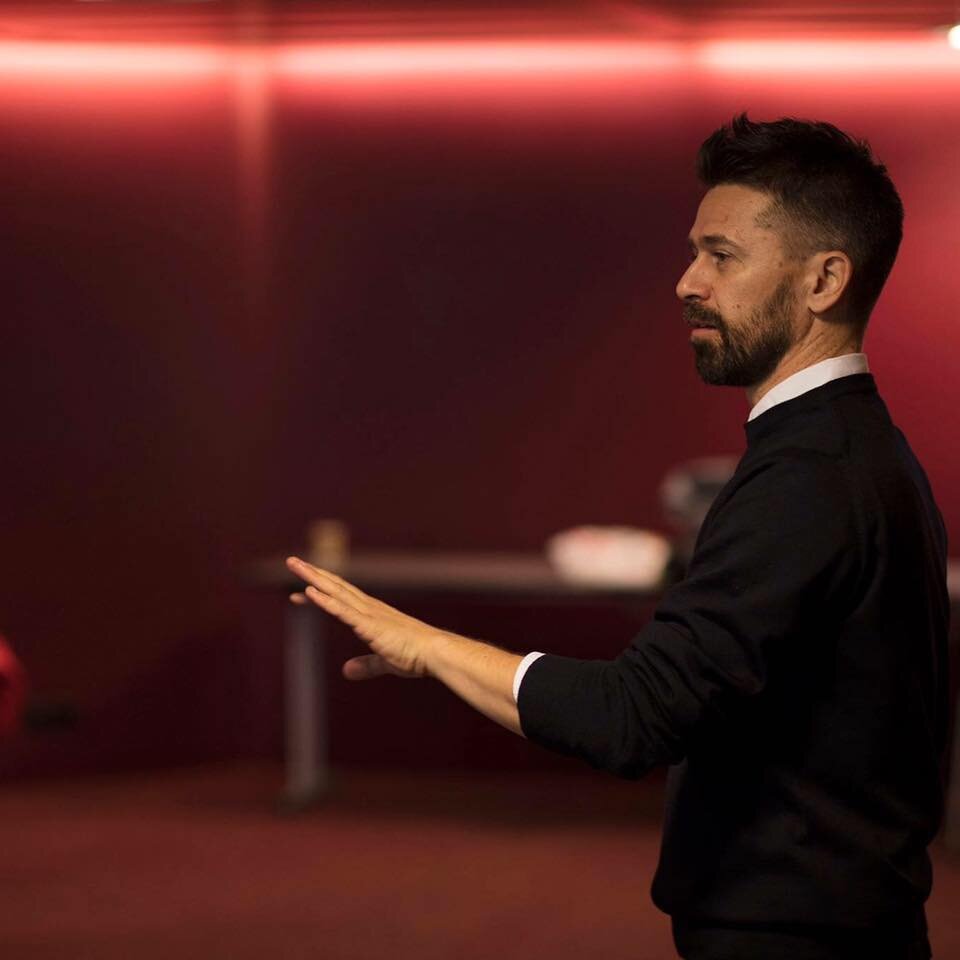My idea of Systems Leadership
If you type "leadership" on Amazon, you will get more than 40 thousand titles. Far from me the idea to give you another (often useless) definition of what leadership is and above all, who a leader is. Instead, I am interested in understanding the profile of the executives needed to steer nowadays organizations.
Recently we started to read about the Chief Adaptability Officer. The term indicates an executive trained on a mix of soft and hard skills able to properly deal with the VUCA world, in a more conscious way.
I believe this is a fondamental evolution in the conversation about leadership. For the first time ever we are saying that is not by chance that somebody is able to surf the uncertainties thanks to his gut and balls, instead we are saying that there’s a specific set of skills that can give everyone the chance to do it. Finally, the importance of developing punctual skills (both relational and methodological) is finally stated.
It takes a mental space (mindset, skills, culture), a tangible one (tools and structures) and a coherent process (methods and wow), for managing organizations in the VUCA world.
A leader who wants to navigate today complexity, first of all, have to be aware of his/her organization (no matter its size). To do so, he/she cannot trust blindly just the numbers. It must therefore, be present in the office, in the halls, in the meetings, online. If there are no conversations, his/her strategic task is to inspire them, for creating a vision, for provoking, for sparking a debate, even the contrast if necessary, since it is from friction that new good things often are born.
On the other hand, if there are already a lot of conversations, his/her job is to give them a voice, analyzing the key points and bringing back insightful thoughts in a structured way, so that everyone can recognize them and refer to it.
He/she must learn to engage and retain the right people differently than in the past, because today certain values are considered more important than money. He/She has to value things such as the mental health of the workplace. Making sure that the company is a place where everyone feels protected, where everyone can say what they think and can make mistakes. He/she must know how to include, create empathy, take an honest interest in people more than their roles, share successes and debacles because all of this creates strong bonding, needed to maximize engagement and ultimately contribute to everyone's happiness.
In essence, he/she must develop social intelligence to better relate to the themes and actors of the system.
The new leadership must therefore, change the fulcrum of the role from being a manager (which we take for granted is an activity carried out in the best way) to be a facilitator of people and processes. Having an adequate relationship with the system, being able to indicate where to find problems and where to investigate solutions.
All of the above takes new skills and a different culture. For example, it is necessary to mature the acceptance that the solution sometimes cannot be foreseen and that it will often be the result of a distributed collaborative process, potentially difficult and that the final result may not be in the direction leaders hoped for.
Executives need to be aware that their ideas will have to be defended and argued, perhaps even admitting that they might have changed during the process of maturing. It means having a style of servant leadership, which places authoritativeness before authority translating in more ability to involve, listen, suggest, inspire. Essential characteristics to never waste the path for a solution and to maximize and perfect the execution of it.
Leaders have to become skilled track cyclists. Do you know the track cycling races? Those types of athletes are masters in the art of surplace, a technique that allows you to remain firmly balanced on the bicycle, waiting for the best time to attack and surprise your opponent. Yes, because their most difficult task is to maintain the structure they steer, on that sweet spot that lies between the energy of generative chaos and the deadly state of stillness created looking for total efficiency.
Ready to sprint to win, or to slow down and recover when tactics allow. A tension that is created by learning the art of alternating phases, trying to disrupt the system when it starts to have too much stability, pushing for efficiency when it loses too many resources. It means maintaining the spirit of a pirates crew that can handle the unexpected and navigate all types of waters thanks to their individual skills and the strength of the group (the best start-ups!), while growing a brigade of sailors able to carry out orders and optimize any necessary procedure to safely steer the ship (the best companies, doh!).
It means cultivating pockets of chaos and at the same time of high efficiency, so that they can be agents of change, symbols for inspiration in the moment of need, essential places for specific know-how to pull when the pace of change must be pushed or when you need to focus on efficiency. It means - again - to be primarily a facilitator of people, to always have a great awareness and authority virtually on everything, and became a facilitator of processes to work in a coherent and effective way for facing daily challenges.
There is nothing permanent except change. — Eraclito
What brought me here.
The important things in our lives, usually come unexpectedly. You do not plan for them, they just happen. But it takes a lot of energy, thinking, passion and will to remain able to catch them when they pass by.
I never worked as an employee in my entire life, spending the first part of my path working on different media, especially digital media. I got a first mailbox in 1989 and since then the following years were a tourbillon of learning opportunities and daily discoveries pushed by the speed of technology innovation: from the Bare Bones guide to HTML to the revolution of CSS, from the beta version of the first desktop publishing programs on wintel (who remember the first version of CorelDraw?), until the most sophisticated video editing software. Websites, CDs, DVDs, multimedia, flash, graphics, bitmap, vectorial… you name it. I have sold, designed and managed projects of every size and complexity. Meanwhile, I published house-dance music, I wrote for magazines, I interviewed singers and wrote reviews, shoot end edited videos, published photos and spent hundreds of days as a trainer and director of training and no fewer nights on reading and learning online.
At 30 I asked myself: now what? I had a small media agency, I had good clients, I grew a significant experience as consultant and project manager (as well as an entrepreneur!) and I mostly enjoyed my life, but the Bubble Economy was coming and I wasn’t big enough to survive. Here is when I bumped into Matt and Gail Taylor and their co-design methodology for approaching complexity. It was love at first sight.
17 years later this job brought me across every continent and gave me the chance to work for many different clients in almost every industry. From the Annual Meeting in Davos to the smallest project meeting on the other side of the planet. But most importantly, it gave me the chance to meet and work for powerful and thoughtful people across cultures and places, gifting me with meaningful friendships that certainly helped me to became who I am today.
"
We were in doubts in the first place. We fear to not reach a minimum level of concreteness. At the end we were struck by the richness and depth of the work we have done together. We couldn’t believe that planning, programming and budgeting could be so fun and great.
/ top executive, food & beverage industry /
We are a real network organization
How does it sound to pay just for the best team and tools you need, knowing that ZERO of the amount is given for covering the heavy load of inefficiencies every consulting have?
There are no jerks in CO. We hire and work, just with persons with exceptional human skills. Idiots with PhD and MBA still remain idiots and can be hired by the other consultings.
There are no juniors in CO. We train a lot and we love to mentor new generations but there’s no such a thing as a junior. There are instead newcomers with fewer experiences in the specific methodologies we apply, but with an exceptional track record in their fields. Because we do not believe in vertical knowledge. Specialization is for insects — Robert Anson Heinlein
"
Probably the best ever session I ever attended. It changed my understanding of the job we do here, and raised meaningful questions for my personal path as human being.
/ HEAD OF SALES, HEALTH & CARE INDUSTRY /
Core Team
RAFFAELE SANTORO
Think about the quintessence of “servant leadership” and you meet Raffaele! Seasoned facilitator, designer of collaborative workshops and training, an expert in Health & Safety, Chief Happiness Officer… and he plays soccer a bit like Messi. Oh, and btw he’s holding a degree in psychology.
CARLOTTA CATALDI
Experienced both graphic recorder and graphic facilitator, Carlotta can capture what you are saying in Italian, English, Spanish, Catalan and Swedish. Pretty impressive uh? But what is remarkable is her life commitment to sustainability: reducing her impact and making the world a better place is a pretty great purpose! Facilitator and designer of collaborative workshops, she’s an expert in sustainable fashion.
ARNAUD DOUCET
What is doing a mechanical engineer with years of experience in the aerospace industry here? Well… he’s bringing a (more) scientific and rational mindset when is needed! Former rugby player, and excel black belt (10th dan!) Arnaud is a facilitator and a designer of collaborative engagements.
RODOLFO MAGGIO
Postdoctoral researcher at the University of Oxford, holding a PhD in Social Anthropology from the University of Manchester, having studied Anthropology at The London School of Economics and Political Science and the Waseda University in Japan, Rodolfo is our academic ace, with a twist of a consultant. When is down to understand rites, cultures, habits, stereotypes and bias no one can compete. Fruitful book author, he’s fluent in Italian, English and Japanese (!) too.
FRANCES BIFIELD
Consultant, process facilitator, designer of collaborative sessions, you know that if she takes any responsibility she will deliver… and better than if you would have done it yourself. But being trustworthy isn’t her solo power. In love with the English language, she’s a gifted screenwriter, with a thing for the comedy. So, she will always add her touch on any text, document or communication with her incredible sense of English humour, keeping everyone’s mood always high with a smile.










